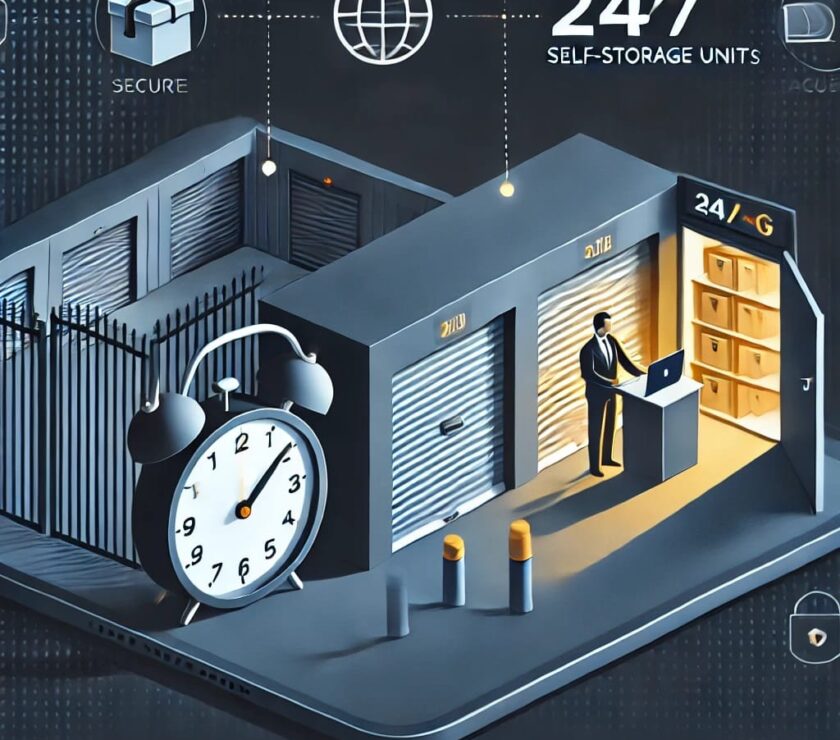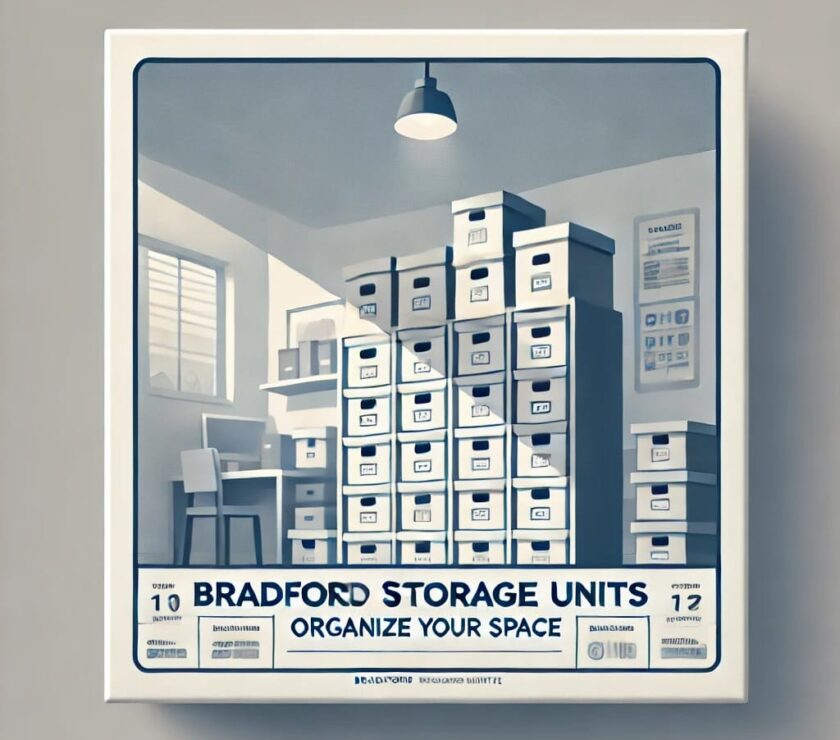Self-storage is an industry that enables individuals or establishments to lease strong rooms, known as designated “units” or “lockers,” and store household items, stock, furniture, and more. These rooms are housed within a storage enclosure, offering a variety of storage space dimensions and additional facilities like temperature control and 24-hour access. Self-storage first developed in the U.S. due to limited housing space and the growing number of possessions, eventually becoming a universal solution for managing assets.
This article will explain the meaning of self storage, its exponential growth, and the additional advantages it offers clients. Whether you’re a homeowner looking to reduce clutter or a businessperson with excess inventory, self-storage empowers you to manage your belongings during various life stages, from moving to downsizing.
The Concept of Self Storage
The self-storage concept, often referred to as mini-storage or storage units, provides space where users can store items they don’t need immediate access to. Instead of letting things accumulate at home or in your office, you can rent a storage unit and put your belongings there. These units vary in size, from small lockers to large spaces that can store the contents of an entire house.
At its core, self-storage gives people more flexibility. Whether you’re moving, redecorating, or decluttering, a storage unit is the ideal location for items you don’t need right now. Businesses also rely on self-storage for excess stock or office supplies, making it a convenient solution when there’s a space shortage at work.
For more insight into the types of items best suited for storage, check out our blog on Pros and Cons of Long-Term Self-Storage.
What Makes Self Storage So Coveted?
Self-storage has gained popularity due to several factors:
- Urbanization: As more people move to cities, space becomes scarce. Smaller apartments and high housing costs lead people to seek external storage solutions for seasonal items or things they don’t frequently use.
- Life Changes: Self-storage units are lifesavers during major transitions, like moving, changing jobs, or settling in a new country. They provide a secure space when you’re unsure of your next steps.
- Business Needs: Small businesses, especially those operating from home, use self-storage units to manage inventory, supplies, or equipment. This declutters their workspace and creates more room for day-to-day operations.
- Security: Modern self-storage facilities offer advanced security measures, including CCTV, alarm systems, access codes, and sometimes even trained personnel. These units are often more secure than storing items at home.
- Convenience: Many self-storage facilities offer 24-hour access, making it easy to retrieve items whenever needed. Whether it’s for a business meeting or a holiday gathering, you can access your belongings anytime.
- Climate Control: Delicate items like electronics, documents, and antiques are safer in climate-controlled storage units. These units maintain consistent temperature and humidity levels, protecting your items from weather damage and moisture.
If you’re a business owner, our article on Organizing Your Storage Unit for Easy 24/7 Access offers valuable insights into how self-storage can support your business needs.
Different Types of Self Storage Units
Depending on your needs, there are various types of self-storage units available:
- Personal Storage: Ideal for individuals who need to store household items, furniture, or seasonal belongings they don’t need daily. It’s perfect for storing winter clothes, garden furniture, or holiday decorations.
- Business Storage: Small to mid-sized businesses use these units to store excess inventory, office supplies, or archived documents. Some facilities even offer units tailored to specific equipment or records.
- Climate-Controlled Storage: These units maintain stable environmental conditions to protect sensitive items like electronics, musical instruments, photographs, and important documents from temperature fluctuations and humidity.
- Vehicle Storage: Many storage centers offer indoor and outdoor spaces for cars, boats, motorcycles, and RVs. This is particularly useful for people with limited parking or those who need seasonal storage for recreational vehicles.
- Student Storage: This option is perfect for college students who need to store dorm furniture, textbooks, or personal items during breaks or study-abroad semesters. Student storage can be short-term or long-term, depending on the student’s needs.
To determine which type of storage is best for you, explore our post on Choosing the Right Storage Unit.
Advantages of Self Storage
Now that we understand what self-storage is, let’s look at some key advantages:
- Create Space in Your Home: The primary reason people use self-storage is to free up space at home. Whether you’re decluttering or storing items you don’t use regularly, a storage unit helps keep your living space organized.
- Security and Safety: Modern self-storage facilities are equipped with CCTV, alarms, and access control, making them more secure than storing items in your garage or basement, where theft or damage is more likely.
- Cost-Effective: Renting a storage unit is often more economical than buying a larger home or office space. You only pay for the space you need, and you can adjust your unit size as your needs change.
- Convenience: Most self-storage facilities offer flexible access, allowing you to retrieve or store your items at any time. You can also choose a facility close to your home or business for added convenience.
- Helps with Transitions: Whether you’re moving, downsizing, or remodeling, self-storage offers a temporary solution to store your belongings until you’re ready to settle in.
- Customization: Some facilities offer shelves or other features to help you organize your items, ensuring they are protected and easy to access.
Key Factors to Consider When Choosing a Self Storage Unit
When selecting a self-storage unit, consider the following factors:
- Size: Choose a unit that fits your needs without leaving too much unused space. You don’t want to overpay for space you don’t need or risk needing a second unit.
- Location: The location of the facility matters if you plan to visit frequently. Choose a facility that’s easily accessible and convenient for you.
- Security: Look for facilities with robust security measures like 24-hour surveillance, alarm systems, and controlled access to keep your items safe.
- Climate Control: If you’re storing sensitive items, climate-controlled units are essential to prevent damage from temperature changes and humidity.
- Pricing: Compare the costs of different storage facilities and choose one that offers transparent pricing without hidden fees.
Conclusion
In conclusion, self-storage is a versatile, secure, and convenient solution for both individuals and businesses. Whether you’re decluttering your home, storing business inventory, or looking for a temporary space for your belongings during a move, self-storage provides a cost-effective and flexible option.
If you’re in need of reliable self-storage, visit Southwick Storage to find the perfect storage solution for your needs. For more tips and insights on how to make the most of your storage experience, explore the blog section.







